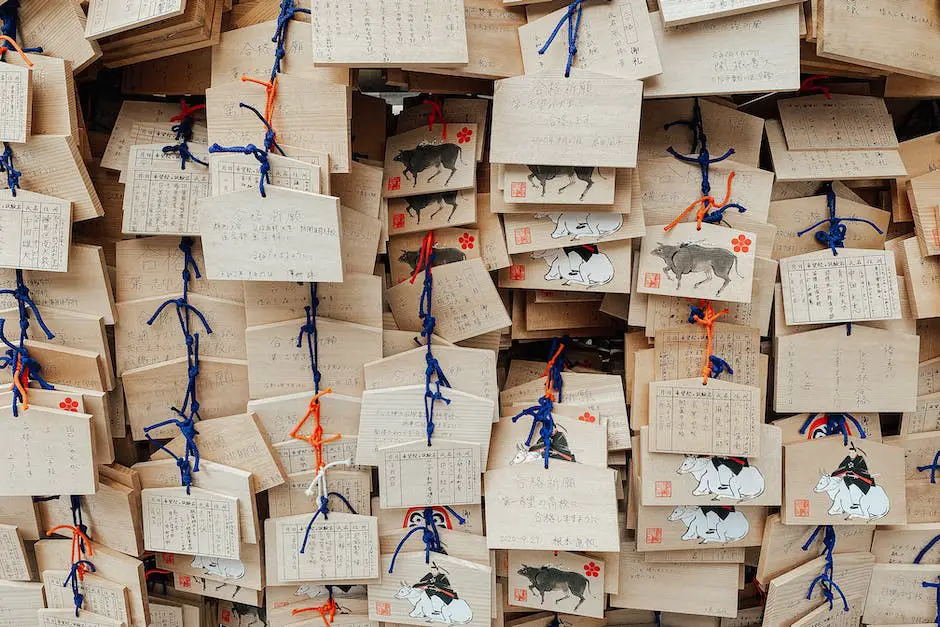Exploring the enigmatic realm of dreams provides intriguing insights into our subconscious mind and its profound connection with our emotions, fears, and desires. One of the most perplexing recurrent dream themes one can have is seeing a dead person alive. This phenomenon, evoking feelings of astonishment, worry, or serenity, can be laden with symbolic meanings, revealing hidden depths in our subconscious. The following essay embarks on a journey into understanding dream symbolism, with particular emphasis on recurrent themes involving death and rebirth. It takes a deep dive into the specific interpretations of dreaming about a deceased person being alive, in light of various emotional and situational contexts. Recognizing the diverse tapestry of human cultures and beliefs, the essay also delves into examining such dreams from cultural perspectives across the world.
Understanding Dream Symbolism
The Psychology of Dream Symbolism
Dreams are the product of an intricate dance between the conscious and subconscious mind. Psychology posits that the symbols that appear in our dreams aren’t arbitrary or irrelevant, rather they signify deep-seated emotions, thoughts, or anxieties that we might not be consciously aware of. Scientific research indicates that dream symbolism can often be our brains’ way of processing and deciphering complex emotions or experiences.
Interpreting Dreams: Seeing a Dead Person Alive
The appearance of a deceased person in dreams can be quite alarming for individuals. However, in dream psychology, such an experience may not signify something morbid or negative. Seeing a dead person alive in dream can mean different things based on the context and emotions associated with the dream.
If there was a strong emotional connection with the deceased person, dreams featuring them alive can be an expression of grief or a manifestation of the process of recalling the person’s memory. It could merely mean you miss them and are going through the normal process of mourning.
Scientific Perspectives: Grief and Memory
From a scientific standpoint, research indicates that these dreams may occur because of the brain’s way of reactivating memories and emotions, especially when the memories are strong and emotionally charged. Dreaming of seeing a dead person alive can be a way for the brain to help adjust to the new reality and process the pain of losing a loved one. The brain employs these dreams to unfold a narrative, reconstruct memory and deal with the emotion associated.
Influences from Cultural Perspectives
From a cultural angle, seeing a dead person alive in a dream can have spiritual or supernatural connotations. Some people find comfort in believing that these dreams can be a form of communication from the deceased. However, it’s essential to note that these beliefs are purely personal and subjective, and they often vary widely from one culture to another.
Approaches to Dream Analysis
Dreams can be remarkably cryptic, and interpreting them often relies on understanding the broader context, individual emotions and personal experiences. Carl Jung, a renowned psychologist, suggested that seeing a dead person alive in a dream can be seen as an archetype from the collective unconscious, driving individuals toward self-actualization and wholeness. Other psychologists, like Sigmund Freud, viewed dreams as expressions of repressed desires or unresolved conflicts.
Personalizing Dream Interpretation
It’s crucial to understand that interpretations of seeing a dead person alive in a dream may vary greatly depending on the individual’s personal experiences, emotions, and the context of the dream. Dream analysis isn’t a one-size-fits-all discipline, and what might hold true for one individual may not do so for another. Personal symbolism contributes significantly to the meanings our dreams may hold for us.
The Value of Professional Guidance
Understanding the symbols within dreams can provide meaningful insights, but it’s crucial to not depend entirely on self-interpretation, particularly if distressing dreams are becoming a frequent occurrence and causing emotional distress or hindering your daily activities. During these challenging times, professionals who specialize in dream analysis or bereavement counseling can offer valuable guidance and emotional support.

Common Dream Themes Involving Death and Rebirth
Decoding Dreams: A Psychological Perspective
In the realm of psychology, dreams, especially those involving departed loved ones, are recognized as complex and multi-dimensional. Such dreams often incorporate symbols, allegories, and themes that communicate profound psychological messages. These messages are not always straightforward. Quite the contrary, they often serve as coded communication or echoes of our innermost thoughts, feelings, and wishes.
Seeing a Dead Person Alive in Dreams
Seeing a dead person alive in dreams is a remarkably common theme. The underlying meanings can range widely depending on the nuances of the dream and the dreamer’s personal psychology. Frequently these dreams stem from a need for closure, unresolved emotions toward the person, feelings of guilt, or residual fear related to the person’s death.
Alternatively, sometimes seeing a deceased person alive in a dream may symbolize the effect they had on you, with their influence continuing to ‘live on’ within you. Your subconscious may use the image of this person to communicate elements of your character, life experiences, or emotions that you’re currently grappling with.
Death and Rebirth Themes in Dreams
The concept of death and rebirth is a recurring theme in many types of dreams. Psychologically, this theme can suggest transformation, change, and personal growth. Seeing a dead person come alive in dreams can embody this theme. This vision could imply a desire to revive aspects of your connection with them, or it could be your psyche’s way of prompting you to address unresolved issues related to their death. Rebirth in this context doesn’t always mean physical rebirth of the person; it often symbolizes transformation within oneself or one’s perspective.
The Role of Fear and Guilt in Dreams
Fear and guilt are powerful emotions capable of influencing your dreams. If you’re experiencing fear or guilt related to the person who died, it’s common to unconsciously incorporate them into your dream world as a means of grappling with these feelings. These dreams serve to bring these emotions to light, suggesting a need to confront, understand, and manage them.
Processing Unresolved Emotion and Seeking Closure
Another common reason for seeing a dead person alive in a dream pertains to your need to process unresolved emotions or to seek closure. If there are lingering feelings or unexpressed thoughts associated with the deceased, your mind can use dreams as a space to explore these unresolved issues, allowing you to achieve emotional resolution or closure on your own terms.
Understanding dreams, especially ones about seeing a deceased person alive, can be a multifaceted and personal experience. Such dreams are typically symbolic of various emotional and psychological states that one might be experiencing. These might be related to guilt, fear, longing for closure, or unresolved emotions associated with the departed person. Therefore, dreams of this nature can be a part of the subconscious mind’s attempt to process our real-world feelings and experiences.

Specific Meanings of Seeing a Dead Person Alive in a Dream
Digging Deeper into Dreams Involving the Deceased
Dreams form an intrinsic part of the human experience, and each dream has the capacity to carry distinct meanings. In the context of dreams where a dead person appears alive, the interpretations can be notably intricate and laden with emotion. The reasons for such dreams can be numerous and the meanings conveyed can vary greatly, based on factors such as the dreamer’s current life situation, emotional well-being, and the nature of their relationship with the deceased.
Decoding Dream Symbols: Dead Persons Reviving
Dream symbols are often not literal but are symbolic representations of our subconscious thoughts, emotions and experiences. Seeing a dead person alive in a dream could indicate a desire for closure or unexpressed emotions towards the deceased. It could be a way of our subconscious mind urging us to address feelings of grief, guilt, or regret that we may harbour relating to the deceased person.
Emotional State and Dream Interpretation
Our emotional state at the time of a dream can significantly influence its interpretation. For example, if we are currently going through a stressful or emotionally overwhelming period in our lives, seeing a deceased person alive in our dreams can be a reflection of our longing for comfort, guidance, or reassurance. The presence of a loved one who has passed might symbolize a sense of stability or familiarity which we yearn for amid our present turmoil.
Dreams Reflecting Life Circumstances
Sometimes, life circumstances can greatly influence the content and meaning of our dreams. If we are undergoing significant changes in our lives, such as a move, a new job, or a major decision, such dreams might signify a desire for the wisdom and guidance of the deceased person who we trust and respect.
Symbolism of Renewal and Transformation
Another common interpretation of seeing a dead person alive in a dream is the symbolism of renewal and transformation. This could be highly personal, indicating the dreamer’s own transition, growth, or personal metamorphosis. It could also signify changes and transitions in areas of their life, such as a major career change, educational pursuit, or the end of one stage of life and the beginning of another.
Unresolved Issues or Emotional Debts
In some cases, seeing a dead person alive in a dream could symbolize unresolved issues or emotional debts with the deceased. The dream could indicate that the dreamer has lingering doubts, unanswered questions, or unexpressed feelings towards the individual who has passed away, and their subconscious mind is seeking resolution or closure through the dream narrative.
Personal Relationships and Connections
The personal relationship with the deceased person is also a strong factor in interpreting such dreams. The closer the relationship, the more profound the dream’s potential meanings. Previously held emotional attachments, shared experiences and known personality traits of the deceased can all contribute to the context and tone of the dream, impacting potential interpretations.
It’s important to note that dream interpretations, while they can offer some general understanding, are often intensely personal. The symbols found within our dreams can be informative, but the real substance of these dreams can only be understood through the lens of our own unique experiences, relationships, and feelings.

Cultural Views on Seeing a Dead Person Alive in a Dream
Interpreting Dreams of the Deceased: A Cultural Examination
Dreams, notably those involving people who have passed away, are read in various ways around the world, largely due to cultural and spiritual perspectives. In many cultures, the act of seeing a dead person alive in a dream isn’t simply a puzzling event, but rather a spiritual or symbolic encounter, filled with layers of potential interpretations and meanings.
Western Culture and Dreams
In the West, especially in psychology-influenced circles, seeing a dead person alive in a dream might be interpreted as an aspect of the grief process. This can be a way for the dreamer to achieve closure or make sense of their loss. Many psychologists, such as Sigmund Freud and Carl Jung, suggest these dream images may represent unresolved issues or feelings towards the deceased.
African Cultural Perspectives
In many African cultures, dreaming about a deceased person is not uncommon and often carries spiritual meanings. The dead are believed to communicate with the living through dreams, making their presence known or revealing impending danger. Therefore, seeing a deceased loved one in a dream could be interpreted as a warning, a spiritual visit, or a message from the ancestors. This belief is prevalent across many African societies, including those in Nigeria, Ghana, and South Africa.
Eastern views on Dreaming of the Dead
In Eastern cultures, dreams are often deeply intertwined with religion and spirituality. For example, in Chinese culture, dreaming of a deceased person is usually seen as a sign that the dead individual’s spirit is not at peace. It may also signify unresolved issues with the departed. In contrast, in traditional Indian beliefs, such dreams might be interpreted as the deceased individual’s soul finding peace.
Indigenous Beliefs and Dream Interpretations
Indigenous cultures around the world, including Native American and Aboriginal communities, hold particular reverence for dreams. They often view dreams as vital pathways for communication between the spiritual and earthly realms. Thus, seeing a dead person revived in a dream may signify ancestral guidance or wisdom imparted to the living.
The Interplay of Dreams and Cultural Beliefs
Culture and religious beliefs play a significant role in shaping interpretations of dreams involving the dead. A dreamer’s background, belief system, and cultural norms heavily influence how they perceive and interpret such dreams. While these interpretations vary considerably worldwide, one common thread is the view of dreams as significant, carrying messages from the spiritual realm to the physical, particularly when they feature deceased individuals. As such, these dreams often hold a profound significance for the dreamer and those who interpret the dream’s meaning.

Peeling back the layers of meaning behind seeing a dead person alive in a dream illuminates the complex dialogue our subconscious initiates with us during sleep. Be it an exploration of unresolved emotions towards the deceased, a beacon of personal guilt and anxieties, or an insight into our deepest thoughts of mortality and fear — such dreams touch on universal human experiences. Furthermore, when interpreted within the context of cultural views, these dream visions acquire added shades of understanding and significance. As such, it is a fascinating testament to the endless labyrinth of the human subconscious and the intricate ways it navigates experiences of life, death, and everything in between.
